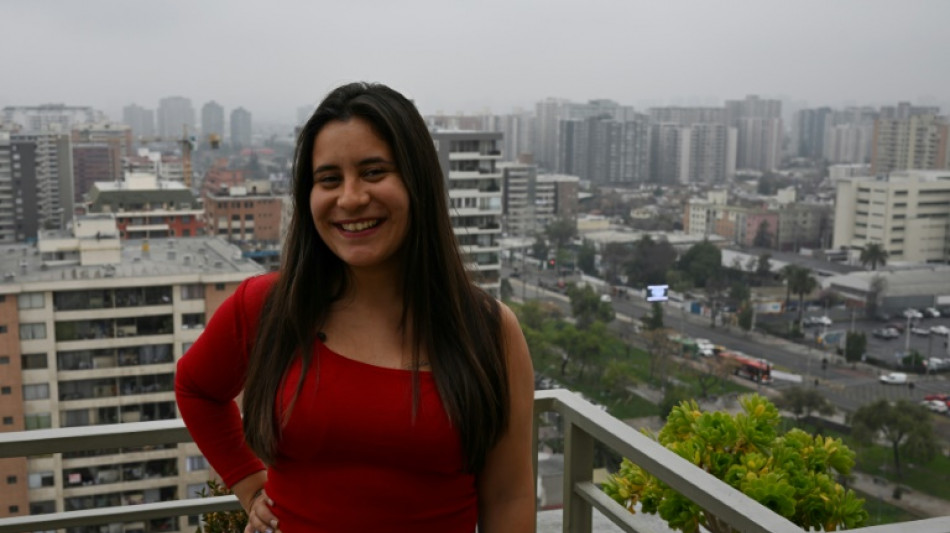
-
 Australia all out for 152 as England take charge of 4th Ashes Test
Australia all out for 152 as England take charge of 4th Ashes Test
-
Boys recount 'torment' at hands of armed rebels in DR Congo

-
 Inside Chernobyl, Ukraine scrambles to repair radiation shield
Inside Chernobyl, Ukraine scrambles to repair radiation shield
-
Bondi victims honoured as Sydney-Hobart race sets sail

-
 North Korea's Kim orders factories to make more missiles in 2026
North Korea's Kim orders factories to make more missiles in 2026
-
Palladino's Atalanta on the up as Serie A leaders Inter visit

-
 Hooked on the claw: how crane games conquered Japan's arcades
Hooked on the claw: how crane games conquered Japan's arcades
-
Shanghai's elderly waltz back to the past at lunchtime dance halls

-
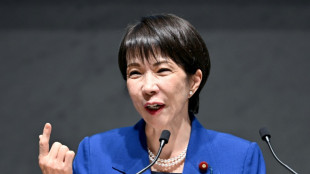 Japan govt approves record 122 trillion yen budget
Japan govt approves record 122 trillion yen budget
-
US launches Christmas Day strikes on IS targets in Nigeria

-
 Australia reeling on 72-4 at lunch as England strike in 4th Ashes Test
Australia reeling on 72-4 at lunch as England strike in 4th Ashes Test
-
Too hot to handle? Searing heat looming over 2026 World Cup

-
 Packers clinch NFL playoff spot as Lions lose to Vikings
Packers clinch NFL playoff spot as Lions lose to Vikings
-
Guinea's presidential candidates hold final rallies before Sunday's vote

-
 Eon Prime Intelligent Alliance Office Unveils New Brand Identity and Completes Website Upgrade
Eon Prime Intelligent Alliance Office Unveils New Brand Identity and Completes Website Upgrade
-
Villa face Chelsea test as Premier League title race heats up

-
 Spurs extend domination of NBA-best Thunder
Spurs extend domination of NBA-best Thunder
-
Malaysia's Najib to face verdict in mega 1MDB graft trial
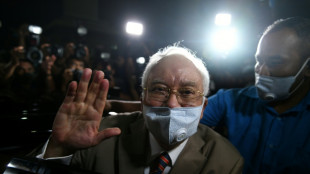
-
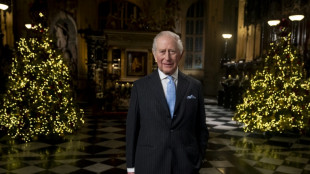 King Charles calls for 'reconciliation' in Christmas speech
King Charles calls for 'reconciliation' in Christmas speech
-
Brazil's jailed ex-president Bolsonaro undergoes 'successful' surgery

-
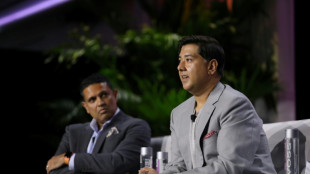 UK tech campaigner sues Trump administration over US sanctions
UK tech campaigner sues Trump administration over US sanctions
-
New Anglican leader says immigration debate dividing UK

-
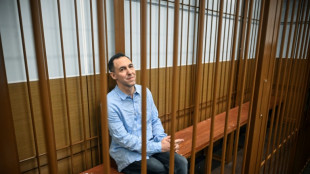 Russia says made 'proposal' to France over jailed researcher
Russia says made 'proposal' to France over jailed researcher
-
Bangladesh PM hopeful Rahman returns from exile ahead of polls

-
 Police suspect suicide bomber behind Nigeria's deadly mosque blast
Police suspect suicide bomber behind Nigeria's deadly mosque blast
-
AFCON organisers allowing fans in for free to fill empty stands: source

-
 Mali coach Saintfiet hits out at European clubs, FIFA over AFCON changes
Mali coach Saintfiet hits out at European clubs, FIFA over AFCON changes
-
Last Christians gather in ruins of Turkey's quake-hit Antakya

-
 Pope Leo condemns 'open wounds' of war in first Christmas homily
Pope Leo condemns 'open wounds' of war in first Christmas homily
-
Mogadishu votes in first local elections in decades under tight security

-
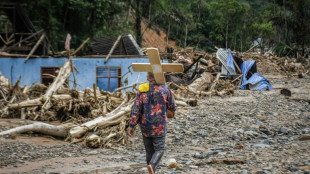 'Starting anew': Indonesians in disaster-struck Sumatra hold Christmas mass
'Starting anew': Indonesians in disaster-struck Sumatra hold Christmas mass
-
Cambodian PM's wife attends funerals of soldiers killed in Thai border clashes
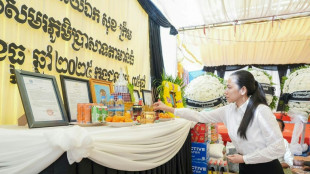
-
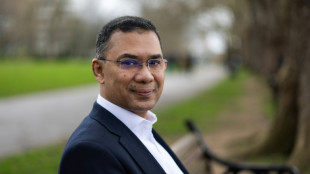 Prime minister hopeful Tarique Rahman arrives in Bangladesh: party
Prime minister hopeful Tarique Rahman arrives in Bangladesh: party
-
Pacific archipelago Palau agrees to take migrants from US
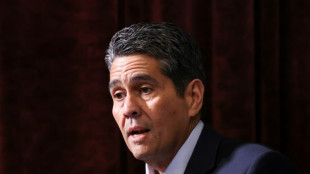
-
 Pope Leo expected to call for peace during first Christmas blessing
Pope Leo expected to call for peace during first Christmas blessing
-
Australia opts for all-pace attack in fourth Ashes Test
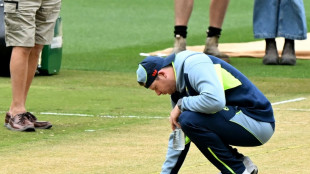
-
 'We hold onto one another and keep fighting,' says wife of jailed Istanbul mayor
'We hold onto one another and keep fighting,' says wife of jailed Istanbul mayor
-
North Korea's Kim visits nuclear subs as Putin hails 'invincible' bond

-
 Trump takes Christmas Eve shot at 'radical left scum'
Trump takes Christmas Eve shot at 'radical left scum'
-
3 Factors That Affect the Cost of Dentures in San Antonio, TX

-
 Leo XIV celebrates first Christmas as pope
Leo XIV celebrates first Christmas as pope
-
Diallo and Mahrez strike at AFCON as Ivory Coast, Algeria win

-
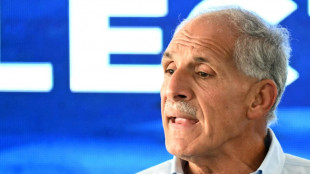 'At your service!' Nasry Asfura becomes Honduran president-elect
'At your service!' Nasry Asfura becomes Honduran president-elect
-
Trump-backed Nasry Asfura declared winner of Honduras presidency
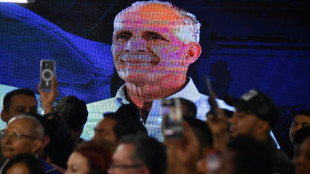
-
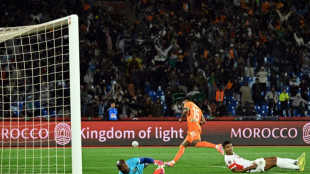 Diallo strikes to give AFCON holders Ivory Coast winning start
Diallo strikes to give AFCON holders Ivory Coast winning start
-
Spurs captain Romero facing increased ban after Liverpool red card

-
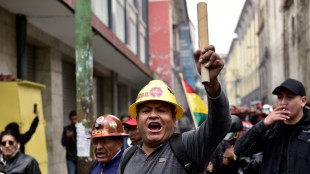 Bolivian miners protest elimination of fuel subsidies
Bolivian miners protest elimination of fuel subsidies
-
A lack of respect? African football bows to pressure with AFCON change

-
 Trump says comedian Colbert should be 'put to sleep'
Trump says comedian Colbert should be 'put to sleep'
-
Mahrez leads Algeria to AFCON cruise against Sudan


Chile birth rate plummets as women say no to motherhood
Chilean lawyer Camila Ramirez, 29, does not want to give up her freedom and well-being to become a mother, and she is not alone.
In the past decade, births have fallen by 29 percent in Chile, now the country with the lowest birth rate in the Americas.
With 1.17 children being born per woman, the Latin American nation is far from the 2.1 needed to maintain its population, according to the National Statistics Institute (INE).
"Being a mother is an absolutely selfless task. I love to travel and when I go on a trip, I do it alone. I don't ask anyone. I just disappear," said Ramirez, who is balancing her job with a master's degree.
"I can't see myself being in charge of feeding and entertaining a child, always prioritizing the wellbeing and care of a child over my own wellbeing," she added.
Declining birth rates are sparking alarm across the globe, especially in developed economies. Even Pope Francis has weighed in, suggesting couples who have pets instead of children are selfish and a threat to humanity.
Chile's birthrate is below that of developed economies such as Italy, Japan, and Spain, according to the UN Population Division.
"The changes around reproduction in Chilean society have been very fast and abrupt. What took decades in Europe has happened in 10 or 20 years in Chile," said Catholic University sociologist Martina Yopo.
Chilean women have gained greater access to education -- especially since universities became free in 2008 -- and entered the workforce in higher numbers.
And with greater reproductive autonomy, "today being a woman does not necessarily mean being a mother, and having a family does not necessarily require children," added Yopo.
- 'An emergency' -
The INE predicts Chile's birthrate will continue to fall in coming years, and not even an increase in immigration is managing to reverse the situation.
"It is an emergency, a health crisis. I can think of few things more important than this from an economic, social and ethical point of view," said Anibal Scarella, president of the Chilean Society of Reproductive Medicine.
Economist Jorge Berrios said the drop in birth rate means "there will be many older people and that they will most likely have to continue working."
"There is no generational renewal in people, in the economy."
As in many countries, gender inequality means that many working women know that if they become mothers, they will bear the main load of parenting.
There is also little support from the state in areas such as childcare, said Yopo.
And women are choosing to have children later, with a third of all births in Chile last year to women aged between 30 and 34. The trend has led to a rise in infertility.
"We are not helping people to be able to reconcile the development of their careers and the desire to fall pregnant," said Scarella, who wants to improve access to assisted fertility and egg preservation.
Physiotherapist Tamara Guzman never dreamed of being a mother, and kept postponing the decision. Now 41, and married, she feels she can't afford the lifestyle she enjoys and raise a child.
"Everything is very expensive. I see it in my friends who are mothers and are super tired, with dark circles under their eyes, and stressed because they have to pay the nanny or the kindergarten, diapers and milk. If I had more income, yes, I would think about it," she said.
- Dire state of the world -
Angered by violence against women and the state of the world, banking executive Isidora Rugeronni decided to get sterilized four years ago, aged just 21.
"I felt that there was a lot of evil in the world, a lot of injustice and I came to 'Antinatalism', which is a philosophy that states that it is not ethical to have biological children with the world as it is," she said.
"I can do much stronger activism and impact society as a woman without biological children," she said.
Rugeronni said she would like to be a foster mother, and also "adopt all the animals I want."
Chile has seen an 80 percent drop in teen pregnancies over the past two decades, according to the INE.
And it is not only women balking at parenthood: the number of vasectomies performed in Chile has risen almost ten-fold in the past decade, from 768 in 2013 to 7,580 in 2023, said the agency.
Meanwhile, female sterilization in public hospitals increased by 54 percent in the same period.
O.Norris--AMWN


